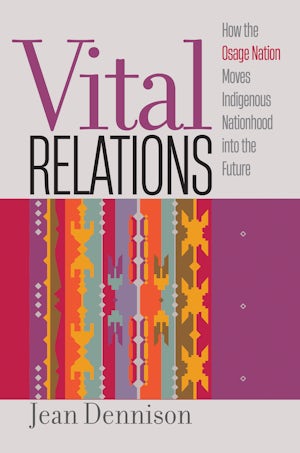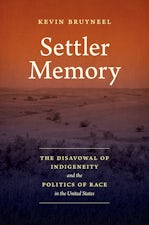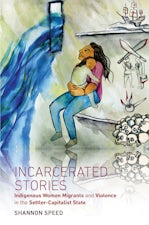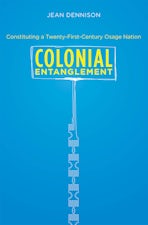Vital Relations
How the Osage Nation Moves Indigenous Nationhood into the Future
By Jean Dennison
236 pp., 6.125 x 9.25, 6 drawings, 1 halftone
-
Paperback ISBN: 978-1-4696-7697-5
Published: April 2024 -
Hardcover ISBN: 978-1-4696-7696-8
Published: April 2024 -
E-book EPUB ISBN: 978-1-4696-7698-2
Published: April 2024
Critical Indigeneities
Paperback Available April 2024, but pre-order your copy today!
Buy this Book
- Paperback $29.95
- Hardcover $99.00
- E-Book $22.99
For Professors:
Free E-Exam Copies
Scholars and future Indigenous leaders can learn from the Osage Nation's past challenges, strategies, and ongoing commitments to better enact the difficult work of Indigenous nation building.
About the Author
Jean Dennison (Osage Nation) is codirector of the Center for American Indian and Indigenous Studies and associate professor of American Indian Studies at the University of Washington.
For more information about Jean Dennison, visit
the
Author
Page.
Reviews
"Dennison's book takes an important place among Indigenous and institutional ethnography, showing the fine details and complex negotiations of tribal governance as they unfold in both ordinary and official settings. Dennison paints a highly contoured and complex picture of the Osage Nation as a site of struggle, contestation, cooperation, and care."—Clint Carroll, University of Colorado
"In this intimately observed ethnography, Dennison engages with the history of colonization, its many legacies, and attempts to rebuild relationships of respect within colonial structures to provide much-needed care for Indigenous people. Her work here should be a model for other Indigenous studies scholars."—Darren Ranco, University of Maine




